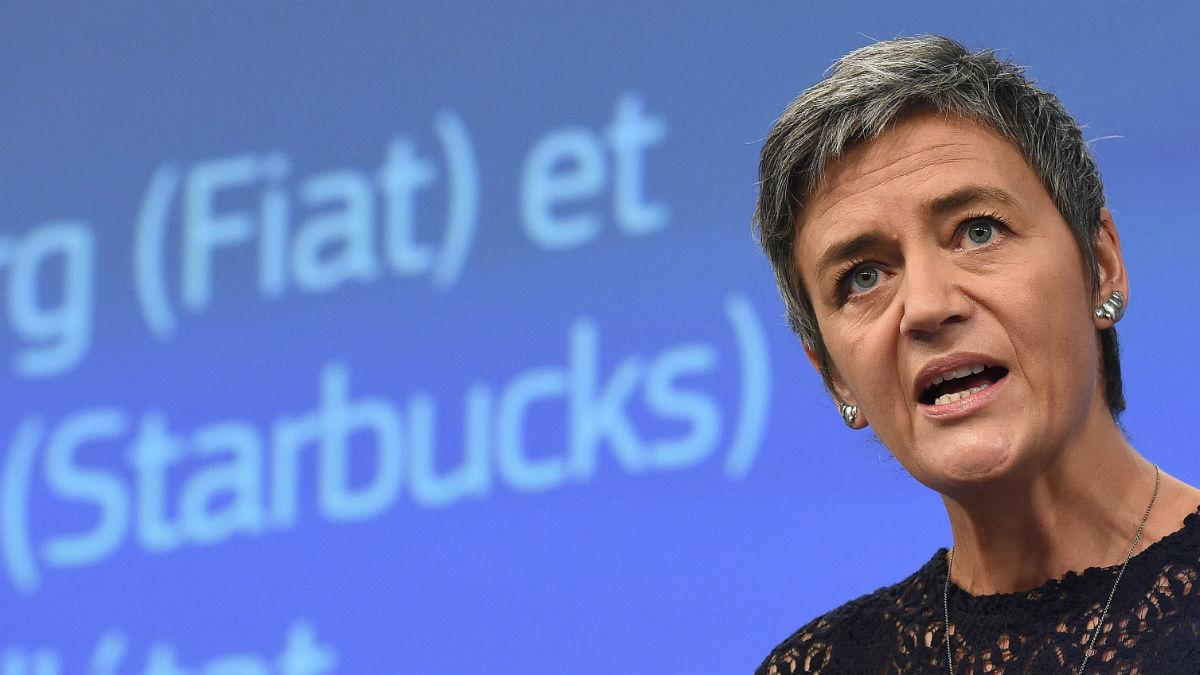Belgium told to recoup €700m from Budweiser, BP and others
Country is subject of latest ruling over "sweetheart" tax deals amid European Commission clampdown

A free daily email with the biggest news stories of the day – and the best features from TheWeek.com
You are now subscribed
Your newsletter sign-up was successful
The European Commission is continuing its clampdown on so-called "sweetheart" tax deals, ordering the Belgian government to recover €700m (£527m) from companies who benefited from tax breaks the EC has deemed illegal.
Why is Belgium being asked to recoup the cash?
As in the case of earlier rulings affecting deals with Starbucks in the Netherlands and Fiat in Luxembourg, the Commission has ruled that bespoke tax rates agreed in Belgium with some larger companies were so generous as to constitute illegal "state aid". EU member states are not allowed to use public funds to support certain firms over and above rivals.
The Week
Escape your echo chamber. Get the facts behind the news, plus analysis from multiple perspectives.

Sign up for The Week's Free Newsletters
From our morning news briefing to a weekly Good News Newsletter, get the best of The Week delivered directly to your inbox.
From our morning news briefing to a weekly Good News Newsletter, get the best of The Week delivered directly to your inbox.
What did the deals involve?
Belgium offered larger corporations "excess profit" rulings, which it marketed under the brand "only in Belgium" and used to lure companies to base in the country. Multinational corporations were offered bespoke cuts to their tax rates to reflect assumed cost synergies or reputational benefits they would not have enjoyed as standalone businesses.
"Instead, companies would be taxed on the hypothetical profits of what a standalone company would have made without these advantages," says the Financial Times. Some businesses made tax savings of 50 to 90 per cent, while a PricewaterhouseCoopers presentation from 2012 claimed Belgium's headline 34 per cent corporate tax rate could be reduced to just 8 per cent.
Which companies benefitted?
A free daily email with the biggest news stories of the day – and the best features from TheWeek.com
Contrary to claims from angry politicians in the US, who have accused the EC of anti-American bias as a result of the case against Starbucks and pending rulings against Amazon and Apple, most of the companies involved were European. In fact, competition chief Margrethe Vestager said firms from within the EU accounted for €500m (£376m) of the total.
Budweiser owner AB InBev is among several companies named by sources that are actually headquartered in Belgium itself, while other businesses thought to be affected include BP and British American Tobacco.
Does the ruling benefit other countries?
Not directly. While in theory the companies in question routed revenues made elsewhere through Belgium, at the moment it is the Belgian government that is being asked to recover the money for its own taxpayers. Longer term, the effect of an ongoing clampdown could be to ensure more taxes are paid where revenues are earned.
So Belgium is going to raise lots of money?
Yes, but it isn't happy about it. Johan Van Overtveldt, the country’s finance minister, hinted to The Times that the government would appeal a ruling it fears could see companies relocate elsewhere, taking jobs and damaging the country's "economic fabric" with them. Belgium had already suspended the "excess profit" regime in February 2015.
Is this the end of the rulings?
Far from it. In addition to the potential appeal in this case and those lodged over the earlier rulings, verdicts on the Amazon and Apple deals in Luxembourg and Ireland are still to come. Moreover, the EC has pledged to do more to reform taxes to prevent corporate avoidance as the year goes on.
Commission officials have acknowledged "its ability to police tax deals struck by member states is limited to cases where it can be clearly shown that countries are favouring some companies over others," The Guardian notes. Tax commissioner Pierre Moscovici has promised a more comprehensive approach and tweeted last week that reforms would "bear fruit" this year.
-
 The ‘ravenous’ demand for Cornish minerals
The ‘ravenous’ demand for Cornish mineralsUnder the Radar Growing need for critical minerals to power tech has intensified ‘appetite’ for lithium, which could be a ‘huge boon’ for local economy
-
 Why are election experts taking Trump’s midterm threats seriously?
Why are election experts taking Trump’s midterm threats seriously?IN THE SPOTLIGHT As the president muses about polling place deployments and a centralized electoral system aimed at one-party control, lawmakers are taking this administration at its word
-
 ‘Restaurateurs have become millionaires’
‘Restaurateurs have become millionaires’Instant Opinion Opinion, comment and editorials of the day